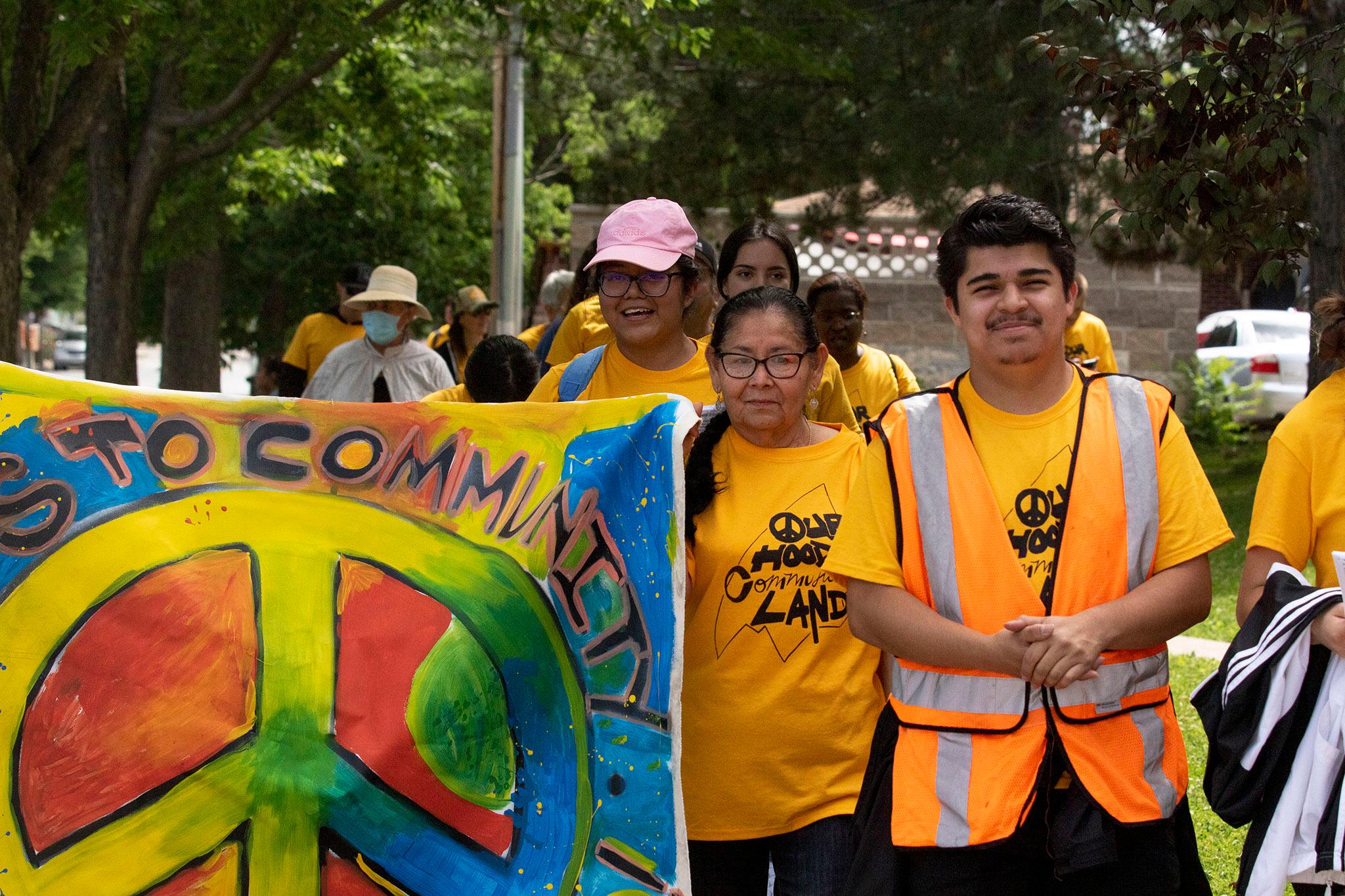A few changes are happening to the group created to manage Denver's National Western Center.
On Monday, City Council voted to amend a framework agreement between the City and County of Denver, Colorado State University, the Western Stock Show Association, and the National Western Center Authority Board that would transform a non-voting community member position on the Board into a voting member.
It's a change that's been on the minds of Globeville and Elyria-Swansea residents since the Board's inception.
If you're lost, no worries. Here's a brief history lesson.
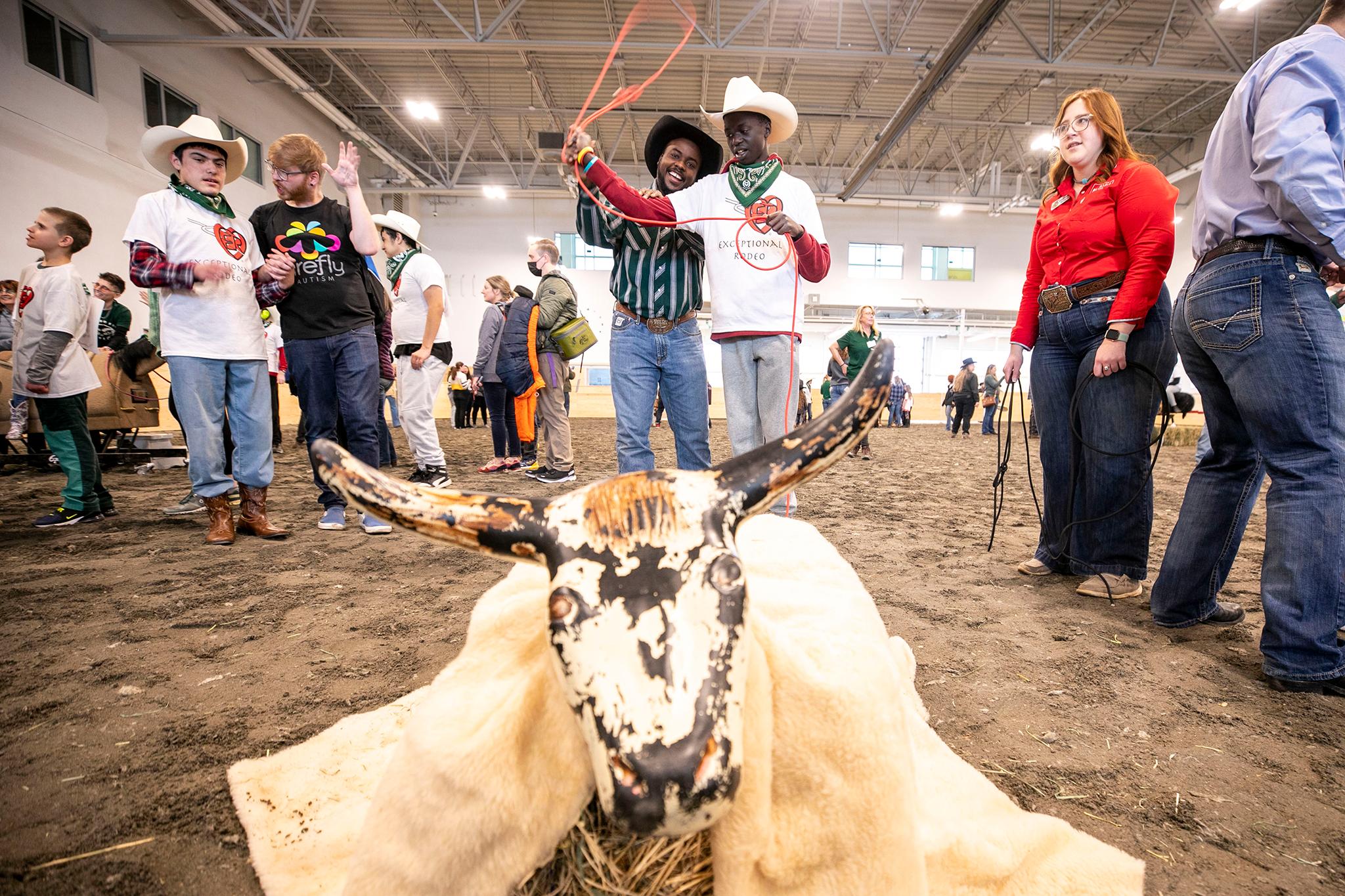
The National Western Complex is home to the "Super Bowl of livestock shows," the National Western Stock Show, a 16-day event that brings in hundreds of thousands of visitors each year. It's been a North Denver staple since 1906.
In 2015, Denver voters approved a measure that would help fund two transformational phases of the National Western Complex and Denver Coliseum into the National Western Center. Instead of being a one-time destination solely for the Stock Show, the Center would be activated year-round and become a global hub for "agriculture, education and entertainment."
So far, that hub includes Colorado State University's satellite campus, CSU Spur. The campus hosts three facilities: Vida, which focuses on animal and human health; Terra is all about food and agriculture innovation; and Hydro, home to everything water. There's also the Riverfront, a new green space set to open in the spring. It used to be a mix of livestock pens and infrastructure that completely blocked access to the South Platte River.
So, who's in charge of the Center? There's Center CEO Brad Buchanan and his team who "implement the mission and vision of the National Center Master Plan." And the people who ensure that mission and vision are implemented are the National Western Center Authority Board.
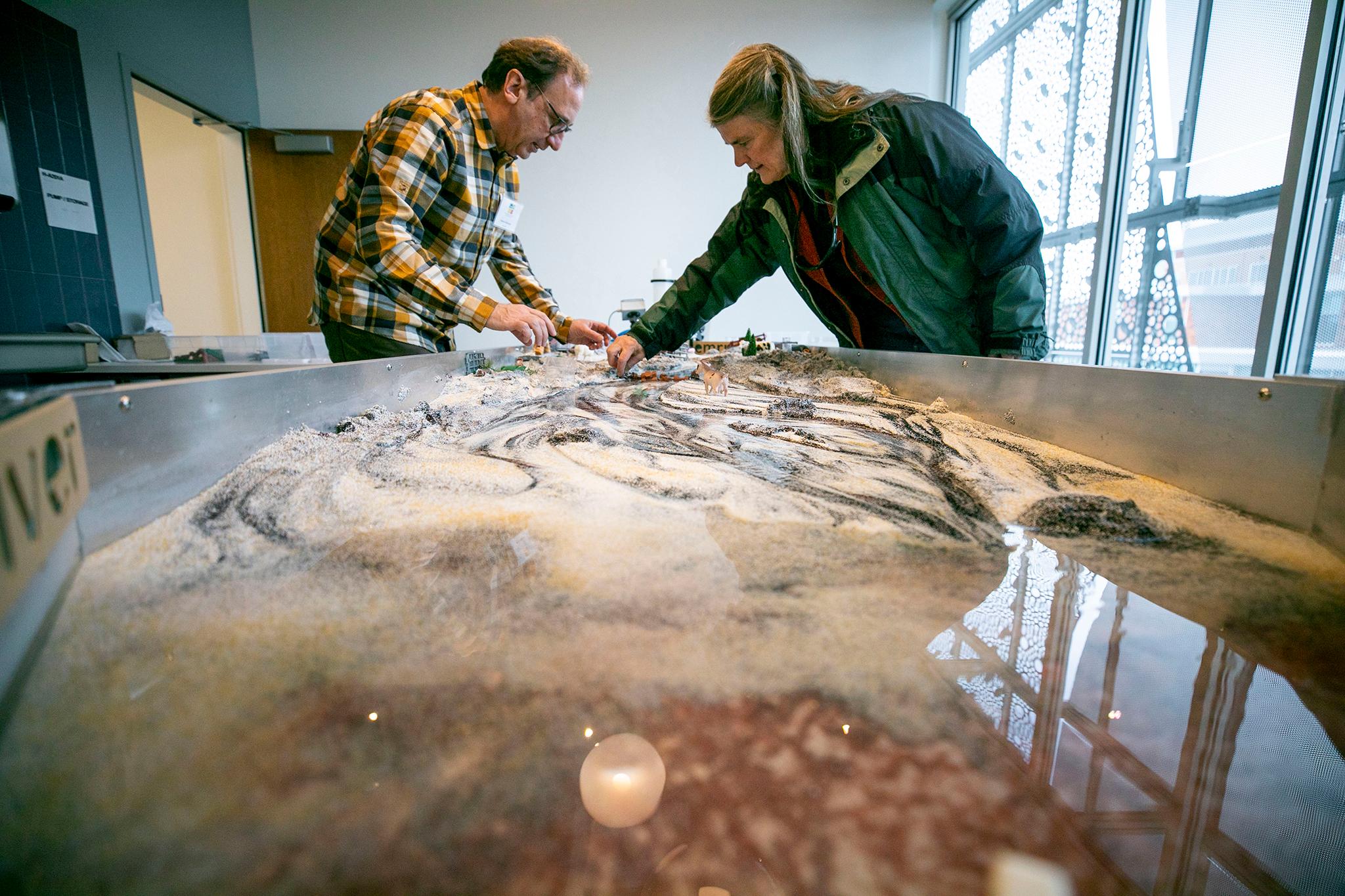
A 2018 agreement between the city, CSU and the Western Stock Show Association called for a 13-member board with 11 voting members, who would be in charge of managing the Center and the Center's redevelopment. Those members include five mayoral appointees, two people to represent CSU, two people to represent the Stock Show and the City's Chief Financial Officer, who is a non-voting, ex-officio member.
The board was also set to include two community members from the Center's neighboring areas, Globeville and Elyria-Swansea. Both members are also appointed by the mayor but only one was a voting member, rounding out the eleven.
Buchanan said that at the time, having community members sit on the Board was an "innovative" idea and one that stemmed from the historic disinvestment of the GES area.
"The GES community has been in a challenging spot for generations," Buchanan said. "The GES communities have dealt with water, soil and air pollution. These have been disadvantaged communities... and one of the core values of the National Western Center is that what benefits the campus should benefit the community."
GES residents have hoped the Center would benefit them. When Denverites voted to fund the Center, nearby residents were the biggest supporters. But at the time of the board's creation, residents felt slighted that only one member would have a true voice.
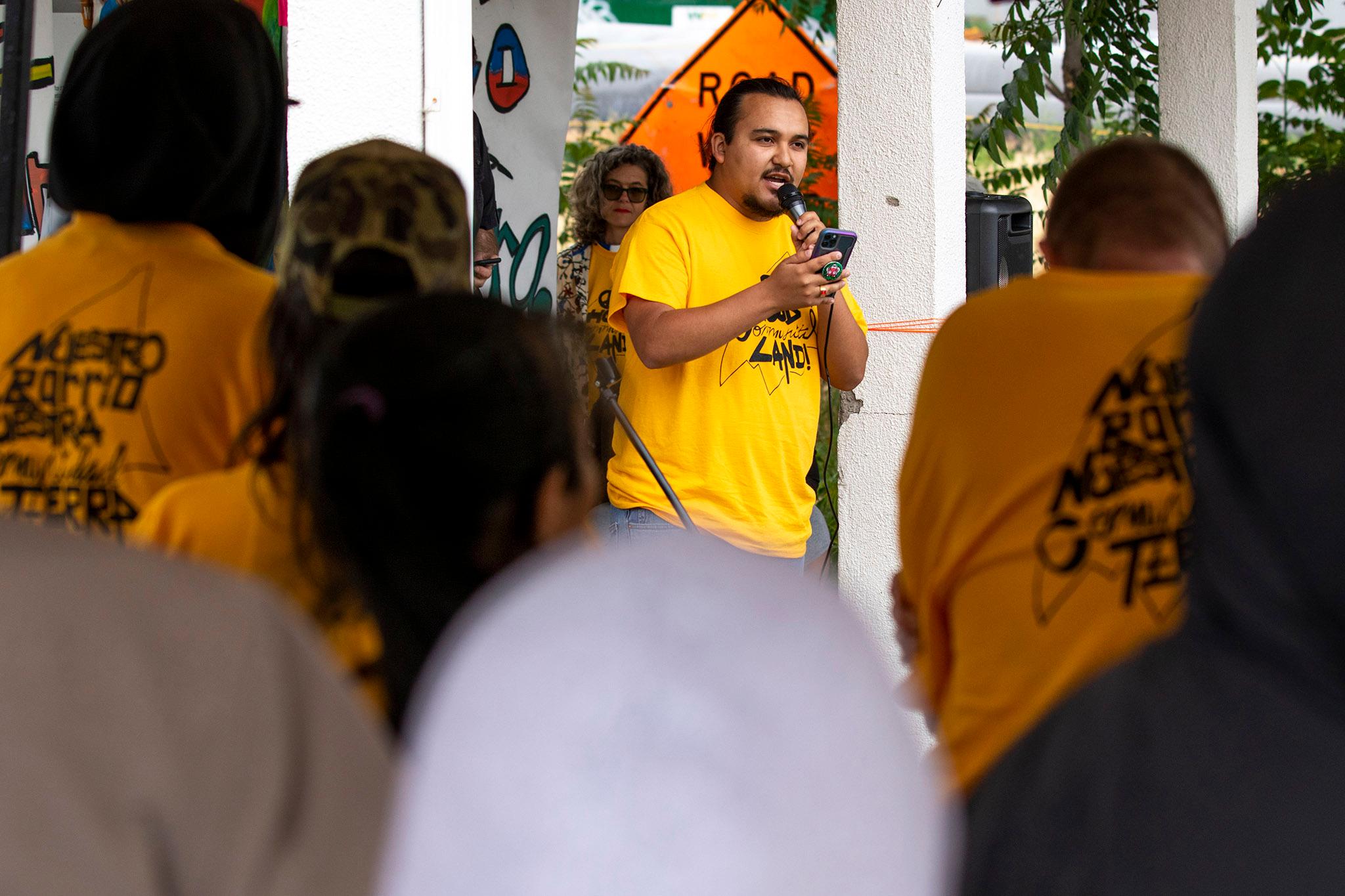
"When they first positioned a community member to be a part of the board... there was pushback then about the fact that they only made one voting seat," said GES Coalition member Alfonso Espino. "The imbalance has always been all the other partners, CSU, National Western, all have two voting members, none of them have one voting and one non-voting."
At the time, the thinking went, 11 voting-members eliminated the need for a tie vote and the composition was based on how much money each partner was putting toward the development. Kelly Leid, the previous executive director of the Office of the National Western Center and a current Board member, previously said the framework agreement bound "three parties" together "all of whom are putting in substantial amounts of money, that binds them to their respective organizations."
In 2017, GES residents disagreed with the financial sentiment, noting that there would be other "burdens" to bear, including losing businesses and residences due to eminent domain. That land, known as "the Triangle" is still vacant due to a pause in the bidding process during the pandemic. Residents are currently working on a campaign to reacquire the land.
That brings us to this week's city council vote, giving that second community board member the ability to vote.
"This next step of adding the second community board member is vital for us to honor the partnership we have with the community and the success of the National Western Center Campus relies on creating a place with, for and by the community," Buchanan said.
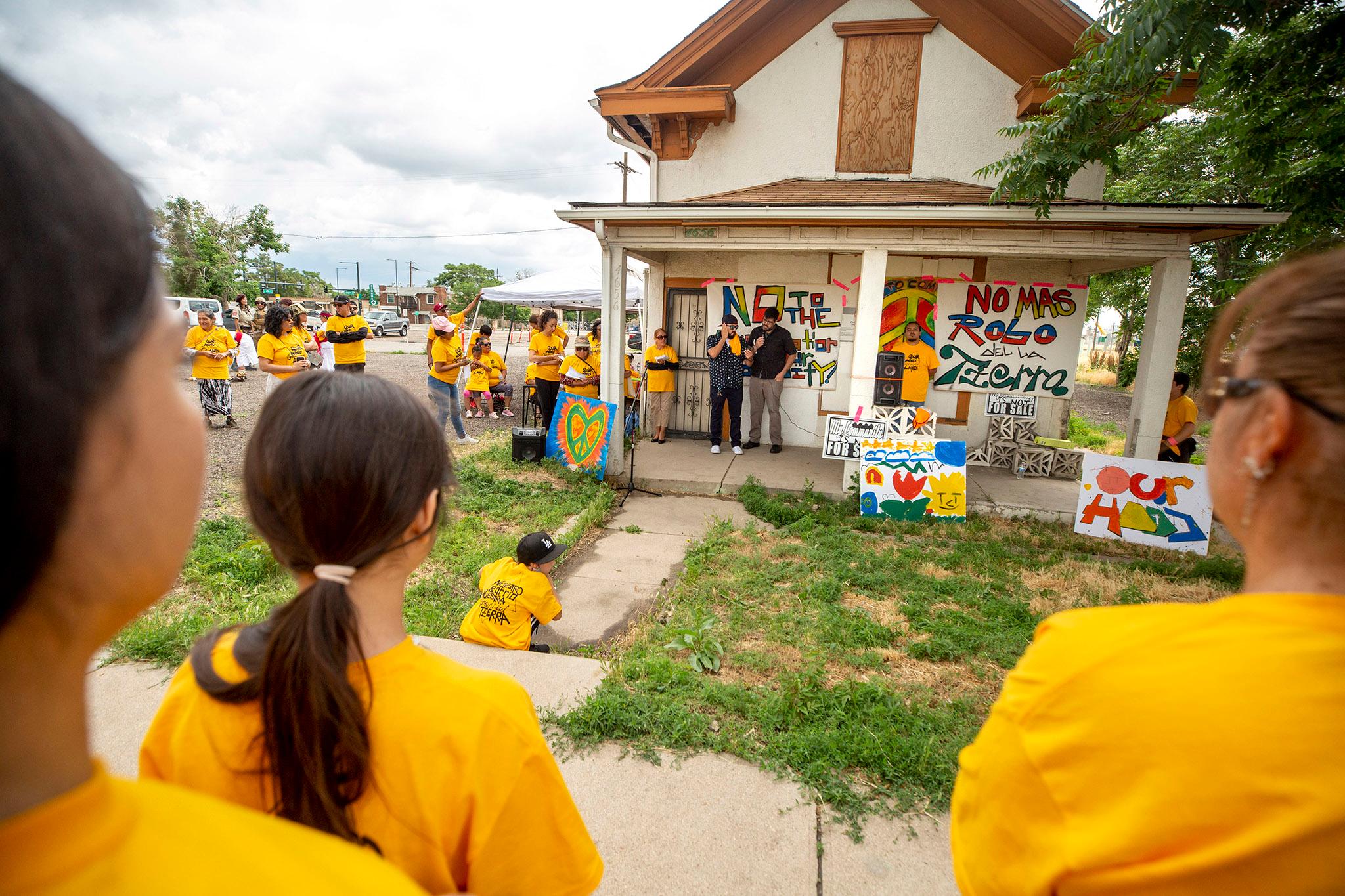
Currently, one community board seat is filled by Sandra Ruiz Parrilla, a North Denver artist and environmental justice activist. The other seat is vacant and the board is currently looking for a community member.
To qualify, prospective board members must live in the GES area and "demonstrate a strong commitment to, and understanding of, the economic, cultural, educational, and social circumstances of residents and businesses" of the neighborhoods.
The seat has been vacant for about a year as the board works with residents to determine additional qualifications of the new member, such as strong communication skills that ensure residents are answered in a timely fashion if they have questions and included in all conversations.
Buchanan said the community board member is also provided with thorough training to ensure they are comfortable being a part of a governing body. If the member needs access to a laptop or wifi, the board will provide it. The position is a five-year commitment and Buchanan added that the board is exploring a stipend program.
Ultimately, the member will be chosen by the mayor and approved by city council, but Buchanan added that the applicant can seek endorsement from community members and groups including, the National Western Center Citizens Advisory Committee.
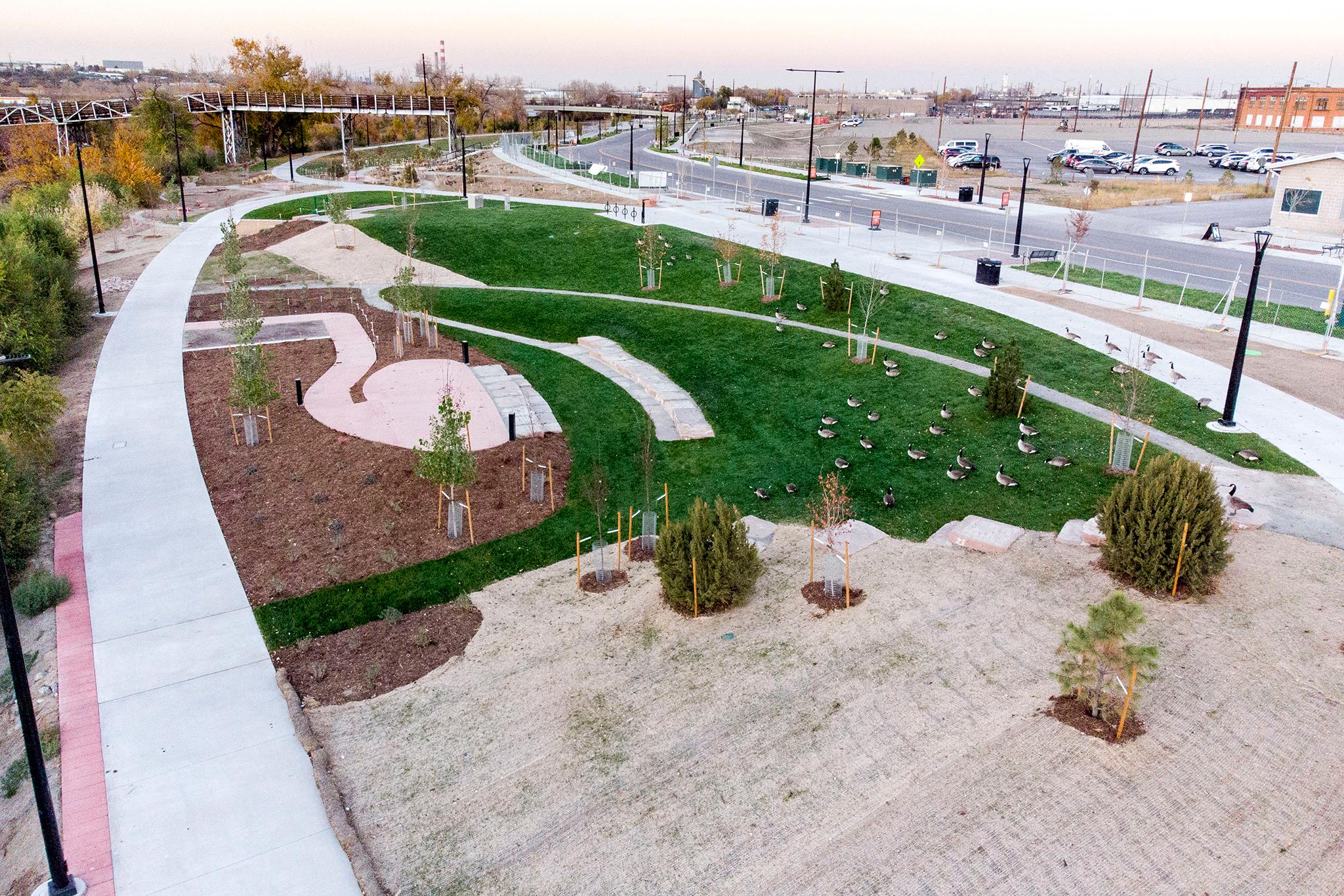
Espino said the additional voting member is a good first step toward bettering the relationship between the Center and residents. But it's only one step. He hopes the community board members are receiving proper training and he hopes that the additional qualification recommendations residents put forward are acknowledged.
There's also the fact that the mayor and city council have the final say who the member will be. Espino said if neighbors recommend a member but that recommendation is ignored, the whole move to add an additional voting member is moot.
"This could definitely be a first step, after a long time, towards working for the needs of the community, the other unfulfilled partner in the total redevelopment," Espino said. "This balances on paper with two voting members but in practice it really isn't if you think about how those people are chosen at the end of the day... I want to know from the partners what are they going to do to make this become the first step in meeting the needs of the community?"

